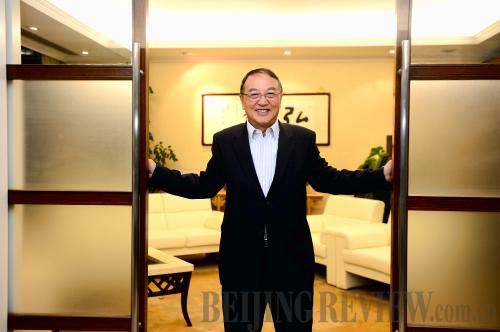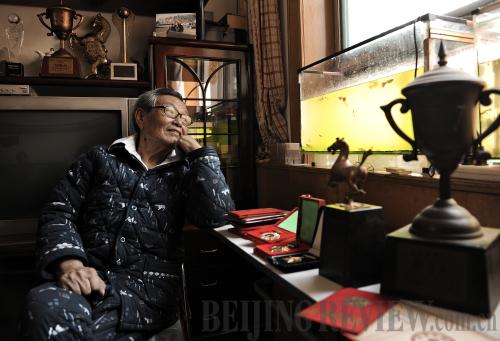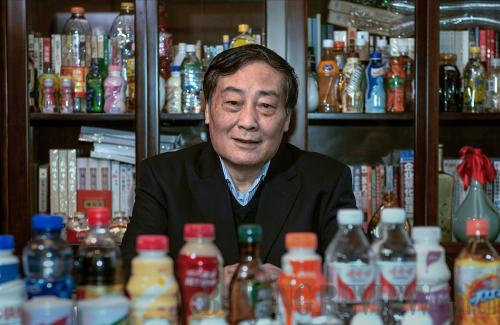|
 |
|
Liu Chuanzhi, 69, founder of China's leading computer maker Lenovo Group, at his office in Beijing on November 12, 2013 (JIN LIANGKUAI) |
Liu Chuanzhi left a reserach institution and created Lenovo in 1984 along with 10 other Beijing engineers and 200,000 yuan ($29,412). "I had no other options left. Although I was 40 when I started my own business, it was still the right time for me to do something," Liu said.
Under his leadership, Lenovo, which was originally known as Legend, rose from a small start-up to become the leading PC producer in China, and a thriving global company. In 2005, Lenovo acquired IBM's Personal Computing Division. It is the fourth largest PC manufacturer worldwide with a total income of $16 billion in 2009.
 |
|
Ma Shengli, 74, former Vice President of Double Star Group, at home in Shijiazhuang, north China's Hebei Province, on November 8, 2013 (LI HE) |
In 1984, Ma Shengli became the first Chinese person in the country to contract a state-owned enterprise, Shijiazhuang Paper Mill, which had suffered a deficit for three consecutive years. For Ma, the only way to turn losses into gains was to abolish the equalitarian system and unleash the productive forces. "If I can't reach my goal, I'm willing to accept the consequences," the so-called "Contractor Ma" said.
A year later, the factory earned 1.4 million yuan ($476,740) and its revenue increased 21.94 times during the four-year contract period.
Ma's reputation won entrepreneurs' trust around China. In 1987, Ma established the "Ma Shengli Paper Group", which incorporated 100 companies from 20 provinces, all running under a deficit.
 |
|
Zong Qinghou, 68, Chairman of Wahaha Group Co, one of China's largest beverage producers, at his office in Hangzhou, east China's Zhejiang Province, on November 13, 2013 (HAN CHUANHAO) |
Zong Qinghou believes he probably drinks more kinds of drink than anyone else in the world. A variety of empty bottles fill his office and warehouse.
When it comes to the secret of his success, Zong responds with ease: "Just know the market as much as possible. Meeting market demand guarantees sales volume."
He currently immerses himself in the market more than 200 days a year. When he travels abroad, he always tries local drinks. It helps him maintain a keen business sense.
 |
|
Wang Zhidong, 46, the founder of Sina.com, one of China's largest web portals, at Tsinghua University Science Park in Beijing on November 29, 2013 (LI HE) |
In the 1990s, Wang Zhidong visited the Silicon Valley for the first time. For a young man who had never heard of the Internet, it was a life-changing experience. In April 2000, Wang made the Chinese portal Sina.com on the NASDAQ list. His story has become a legend in the Chinese Internet community.
He left Sina.com in 2001 and established Dianji Technology. |
